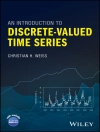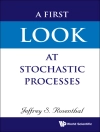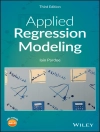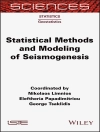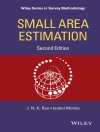Frederick Mosteller has inspired numerous statisticians and other scientists by his creative approach to statistics and its applications. This volume brings together 40 of his most original and influential papers, capturing the variety and depth of his writings. The editors hope to share these with a new generation of researchers, so that they can build upon his insights and efforts.
This volume of selected papers is a companion to the earlier volume A Statistical Model: Frederick Mosteller’s Contributions to Statistics, Science, and Public Policy, edited by Stephen E. Fienberg, David C. Hoaglin, William H. Kruskal, and Judith M. Tanur (Springer-Verlag, 1990), and to Mosteller’s forthcoming autobiography, which will also be published by Springer-Verlag. It includes a biography and a comprehensive bibliography of Mosteller’s books, papers, and other writings.
Stephen E. Fienberg is Maurice Falk University Professor of Statistics and Social Science, in the Departments of Statistics and Machine Learning at Carnegie Mellon University, Pittsburgh, PA. David C. Hoaglin is Principal Scientist at Abt Associates Inc., Cambridge, MA.
Table of Content
Frederick Mosteller—A Brief Biography.- Unbiased Estimates for Certain Binomial Sampling Problems with Applications.- On Some Useful “Inefficient” Statistics.- A k-Sample Slippage Test for an Extreme Population.- The Uses and Usefulness of Binomial Probability Paper.- The Education of a Scientific Generalist.- Remarks on the Method of Paired Comparisons: I. The Least Squares Solution Assuming Equal Standard Deviations and Equal Correlations.- Remarks on the Method of Paired Comparisons: II. The Effect of an Aberrant Standard Deviation When Equal Standard Deviations and Equal Correlations Are Assumed.- Remarks on the Method of Paired Comparisons: III. A Test of Significance for Paired Comparisons when Equal Standard Deviations and Equal Correlations Are Assumed.- An Experimental Measurement of Utility.- A Mathematical Model for Simple Learning.- A Model for Stimulus Generalization and Discrimination.- The World Series Competition.- Principles of Sampling.- Stochastic Models for the Learning Process.- Factorial 1/2: A Simple Graphical Treatment.- A Comparison of Eight Models.- Optimal Length of Play for a Binomial Game.- Tables of the Freeman-Tukey Transformations for the Binomial and Poisson Distributions.- Understanding the Birthday Problem.- Recognizing the Maximum of a Sequence.- The Distribution of Sums of Rounded Percentages.- The Expected Coverage to the Left of the ith Order Statistic for Arbitrary Distributions.- Bias and Runs in Dice Throwing and Recording: A Few Million Throws.- An Empirical Study of the Distribution of Primes and Litters of Primes.- A Conversation About Collins.- Statistics and Ethics in Surgery and Anesthesia.- Experimentation and Innovations.- New Statistical Methods in Public Policy. Part I: Experimentation.- Classroom and Platform Performance.- The Clinician’s Responsibility for Helping to Improve the Treatment of Tomorrow’s Patients.- Innovation and Evaluation.- Combination of Results of Stated Precision: I. The Optimistic Case.- Combination of Results of Stated Precision: II. A More Realistic Case.- Allocating Loss of Precision in the Sample Mean to Wrong Weights and Redundancy in Sampling with Replacement from a Finite Population.- Reporting Clinical Trials in General Surgical Journals.- Compensating for Radiation-Related Cancers by Probability of Causation or Assigned Shares.- Methods for Studying Coincidences.- A Modified Random-Effect Procedure for Combining Risk Difference in Sets of 2 × 2 Tables from Clinical Trials.- The Case for Smaller Classes and for Evaluating What Works in the Schoolroom.- Frederick Mosteller and John W. Tukey: A Conversation.







